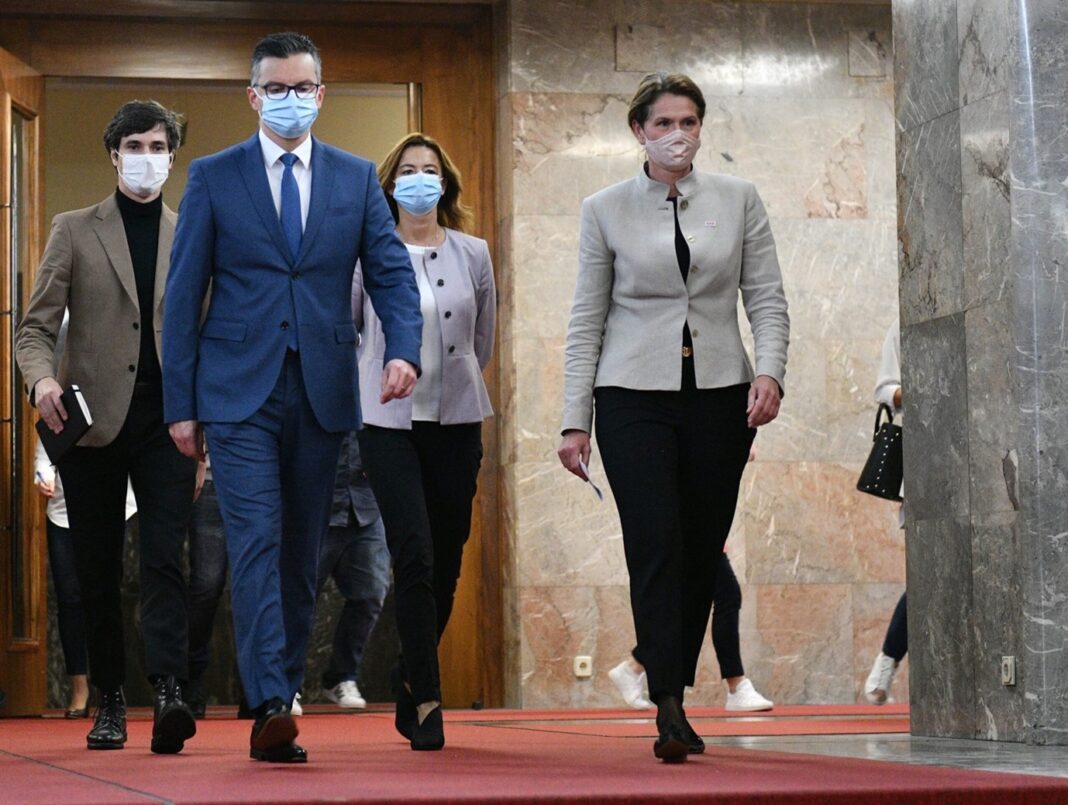By: Nina Žoher / Nova24tv
The European Court of Human Rights (ECHR), which is based in Strasbourg, has ruled that states have the right to dissolve or refuse to register parties that do not distance themselves from former communist parties. The dissolution of such parties is understood as necessary for a democratic society. As is well-known, the parties of the transitional left in Slovenia are still unable to distance themselves from one of the totalitarianisms – communism, and in the Social Democrats party (SD), they even continue to bow before statues of communist criminals.
In 2015, the Communist Party of Romania (RCP) sued the Romanian state for refusing to register the organisation on the list of political parties in the country. In its request, the party claimed that with this action, the state of Romania had violated the freedom of expression and freedom of assembly clause in the Convention for the Protection of Human Rights.
The Senate of judges of the European Court of Human Rights rejected the request of the Communist Party of Romania and ruled in favour of the Romanian authorities, which refused to register the party in question, on the grounds that its platform was “not in line with the law on political parties.” The Romanian state also claimed that “there is a real danger that the Communist Party of Romania will undermine the democratic values,” as it did not want to distance itself from the former Romanian Communist Party. Especially in a period of economic instability dominated by political conflicts before the presidential election and following the recent change in legislation aimed at returning the nationalised buildings, this could have led to conflicts in society. The court also found that the statutory documents of the party, which were not in line with the domestic law, were created because of the will of the party leaders.
The political party, in this case, did not differ from the old structure, as it adopted an almost identical symbol, had the same type of organisation structure and the same political ideology. Moreover, in this case, its programme and statute contained vague, very general conditions for establishing the party’s basic principles, confirming the founders” desire to re-establish the same political ideology of the former communist party, which had already been abandoned. Finally, according to Romanian judges, the new political structure ignored democratic values and did not refer to events that marked state policy, such as accession to the European Union or treaties protecting the fundamental rights of citizens.
The European Court of Human Rights found that the reasons for the decision made by the national court had been explained in sufficient detail
The European Court of Human Rights has backed Romania’s decision, which said it was necessary, in order to “protect national security and the rights and freedoms of others,” as the Communist Party of Romania’s decision not to separate from the former Communist Party, posed a real possibility of abuses in the future. According to the European Court of Human Rights, Romania has taken action with the intention of addressing pressing social issues, and the refusal to register a party is thus perceived as absolutely necessary in a democratic society. The ECHR thus found that the domestic court had given a sufficiently comprehensive explanation of the reasons why it had ruled that the application for registration did not meet the necessary conditions.
The consequences of the European Court of Human Rights’ decision could become apparent throughout Eastern Europe. In Albania, for example, the Albanian Communist Party regularly celebrates the birthday of Enver Hoxha, the country’s notorious dictator. Moreover, the Socialist Party, a direct descendant of the Communist Party, has never officially apologised for crimes committed during the regime’s reign. Recently, the Socialist Party’s MP, Bujar Çela, celebrated National Independence Day with a photo of Hoxha. Meanwhile, in parliament last year, Prime Minister, Edi Rama, said that his father was a communist on the right side of history.

